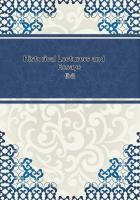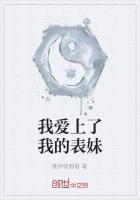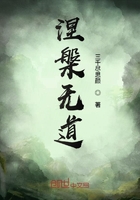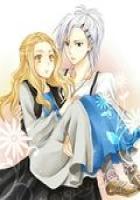The Ambroses had not lived for many years in London without knowing something of a good many people, by name at least, and Helen remembered hearing of the Flushings. Mr. Flushing was a man who kept an old furniture shop; he had always said he would not marry because most women have red cheeks, and would not take a house because most houses have narrow staircases, and would not eat meat because most animals bleed when they are killed; and then he had married an eccentric aristocratic lady, who certainly was not pale, who looked as if she ate meat, who had forced him to do all the things he most disliked-- and this then was the lady. Helen looked at her with interest.
They had moved out into the garden, where the tea was laid under a tree, and Mrs. Flushing was helping herself to cherry jam.
She had a peculiar jerking movement of the body when she spoke, which caused the canary-coloured plume on her hat to jerk too.
Her small but finely-cut and vigorous features, together with the deep red of lips and cheeks, pointed to many generations of well-trained and well-nourished ancestors behind her.
"Nothin' that's more than twenty years old interests me," she continued. "Mouldy old pictures, dirty old books, they stick 'em in museums when they're only fit for burnin'."
"I quite agree," Helen laughed. "But my husband spends his life in digging up manuscripts which nobody wants." She was amused by Ridley's expression of startled disapproval.
"There's a clever man in London called John who paints ever so much better than the old masters," Mrs. Flushing continued.
"His pictures excite me--nothin' that's old excites me."
"But even his pictures will become old," Mrs. Thornbury intervened.
"Then I'll have 'em burnt, or I'll put it in my will," said Mrs. Flushing.
"And Mrs. Flushing lived in one of the most beautiful old houses in England--Chillingley," Mrs. Thornbury explained to the rest of them.
"If I'd my way I'd burn that to-morrow," Mrs. Flushing laughed.
She had a laugh like the cry of a jay, at once startling and joyless.
"What does any sane person want with those great big houses?" she demanded. "If you go downstairs after dark you're covered with black beetles, and the electric lights always goin' out.
What would you do if spiders came out of the tap when you turned on the hot water?" she demanded, fixing her eye on Helen.
Mrs. Ambrose shrugged her shoulders with a smile.
"This is what I like," said Mrs. Flushing. She jerked her head at the Villa. "A little house in a garden. I had one once in Ireland.
One could lie in bed in the mornin' and pick roses outside the window with one's toes."
"And the gardeners, weren't they surprised?" Mrs. Thornbury enquired.
"There were no gardeners," Mrs. Flushing chuckled. "Nobody but me and an old woman without any teeth. You know the poor in Ireland lose their teeth after they're twenty. But you wouldn't expect a politician to understand that--Arthur Balfour wouldn't understand that."
Ridley sighed that he never expected any one to understand anything, least of all politicians.
"However," he concluded, "there's one advantage I find in extreme old age--nothing matters a hang except one's food and one's digestion.
All I ask is to be left alone to moulder away in solitude. It's obvious that the world's going as fast as it can to--the Nethermost Pit, and all I can do is to sit still and consume as much of my own smoke as possible." He groaned, and with a melancholy glance laid the jam on his bread, for he felt the atmosphere of this abrupt lady distinctly unsympathetic.
"I always contradict my husband when he says that," said Mrs. Thornbury sweetly. "You men! Where would you be if it weren't for the women!"
"Read the _Symposium_," said Ridley grimly.
"_Symposium_?" cried Mrs. Flushing. "That's Latin or Greek?
Tell me, is there a good translation?"
"No," said Ridley. "You will have to learn Greek."
Mrs. Flushing cried, "Ah, ah, ah! I'd rather break stones in the road.
I always envy the men who break stones and sit on those nice little heaps all day wearin' spectacles. I'd infinitely rather break stones than clean out poultry runs, or feed the cows, or--"
Here Rachel came up from the lower garden with a book in her hand.
"What's that book?" said Ridley, when she had shaken hands.
"It's Gibbon," said Rachel as she sat down.
"_The_ _Decline_ _and_ _Fall_ _of_ _the_ _Roman_ _Empire_?" said Mrs. Thornbury. "A very wonderful book, I know. My dear father was always quoting it at us, with the result that we resolved never to read a line."
"Gibbon the historian?" enquired Mrs. Flushing. "I connect him with some of the happiest hours of my life. We used to lie in bed and read Gibbon--about the massacres of the Christians, I remember-- when we were supposed to be asleep. It's no joke, I can tell you, readin' a great big book, in double columns, by a night-light, and the light that comes through a chink in the door. Then there were the moths--tiger moths, yellow moths, and horrid cockchafers.
Louisa, my sister, would have the window open. I wanted it shut.
We fought every night of our lives over that window. Have you ever seen a moth dyin' in a night-light?" she enquired.
Again there was an interruption. Hewet and Hirst appeared at the drawing-room window and came up to the tea-table.
Rachel's heart beat hard. She was conscious of an extraordinary intensity in everything, as though their presence stripped some cover off the surface of things; but the greetings were remarkably commonplace.
"Excuse me," said Hirst, rising from his chair directly he had sat down. He went into the drawing-room, and returned with a cushion which he placed carefully upon his seat.
"Rheumatism," he remarked, as he sat down for the second time.
"The result of the dance?" Helen enquired.
"Whenever I get at all run down I tend to be rheumatic," Hirst stated.
He bent his wrist back sharply. "I hear little pieces of chalk grinding together!"














